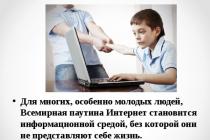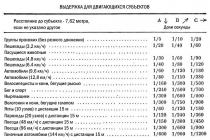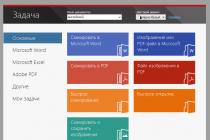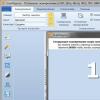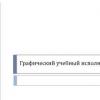Safety schoolchildren on the Internet



- Threat of malware infection. To spread malware and penetrate computers of ordinary users, mail, CDs, flash cards, flash drives and other removable media, or files downloaded from the Internet, as well as transitions to unfamiliar sites, are used. These methods are quite often used by hackers to spread Trojans and viruses;
- Access to inappropriate content. These are violence, drugs, pages that encourage suicide, food refusal, murder, pages with nationalist ideology. Regardless of the user's desire, many sites display pop-ups containing such information;
- Contacts with strangers via chat or email. Increasingly, attackers are using these channels to trick users into giving up personal information. Posing as another person, they can ferret out personal information and seek a personal meeting;
- Search for entertainment (such as games) on the Internet. Sometimes when looking for a new gaming site, you can get on the card server and lose a large amount of money.

- On the Internet, you can find information on lessons, sit on social networks, listen to music, communicate with people and much more.
- !However, a lot of materials of aggressive and socially dangerous content appear on the Internet.

What is dangerous
in the Internet?

Access to inappropriate content:
These are violence, drugs, pages that encourage suicide, food refusal, murder, pages with nationalist ideology.

- First danger - acquaintance, communication with a "friend - a stranger"

- Second danger- distribution of narcotic substances, pornographic materials with the participation of minors, calls for inciting ethnic hatred and extremist actions.

- methods of causing pain and harm,
- excessive weight loss methods
- methods of suicide
- websites that contain hateful messages directed against certain groups or individuals.


The third danger –
internet addiction

- search for information.
- Passion for virtual communication and virtual dating
- obsessive fascination with computer games on the network.
- Obsessive financial need - online gambling, unnecessary purchases in online stores

SAFETY TIPS FOR WORKING ON A PUBLIC COMPUTER:
- Don't save your login credentials .
- Don't leave your computer unattended with important information on the screen .
- cover your tracks .
- Beware of peeking over your shoulder.
- Do not enter important information
on a public computer.

Do parents control
your online presence?

If something is not clear
scary or embarrassing Fast to adults hurry up Tell and show.
Always ask your parents
about unfamiliar things on the Internet.
They will tell you what is safe to do and what is not.

Like everywhere else on the planet, There is danger on the Internet. We rule out the danger If filters are connected.
In order not to face unpleasant
and upsetting information on the Internet, install a filter on your browser, or ask adults to do it - then you can safely use
pages of interest to you on the Internet.

I don't want to get into trouble I'll start the antivirus! Everyone who goes online Our advice will come in handy.
Do not download or open unknown to you
or files sent by strangers from the Internet.
To avoid infecting your computer with a virus,
install a special antivirus program on it!

Sometimes you're online Suddenly there are liars. You don't trust scammers Check the information!
If you want to download a picture or a melody,
but you are asked to send SMS - do not rush!
Check this number online first -
is it safe to send SMS to it and whether you will be deceived.
You can do this on a special website.

Evil people on the internet Spread their networks. With strangers Don't go to the meeting!
Do not meet without parents with people
from the Internet live.
On the Internet, many people tell lies about themselves.

With the brutes on the net Don't start a conversation. Well, do not blunder yourself - Don't offend anyone.
When communicating online, be friendly with others.
Do not write harsh words!
You can accidentally offend someone

So that the thief does not come to us, And the stranger did not find us, Your phone number, address, photo Don't put it on the internet And don't tell others.
Never tell strangers about yourself:
where do you live, study,
my phone number.
Only your friends and family should know this!


First Tuesday in February - Day
safe internet

Internet - This
threat or help?

- Love life!
- Communicate with wildlife!
- Create!
slide 2
Internet security is a very important issue of today. And it concerns everyone, from children to pensioners. It is becoming more and more relevant due to the massive arrival of Internet users who are almost, if not completely unprepared for the threats that await them. After all, not one user suffers, but many others, united in one global structure
slide 3
The number of Internet users in Russia is growing rapidly, but is the level of knowledge on how to counter cyber threats growing? Especially considering that today, as a result of account hacking, you can lose much more than at the dawn of Runet? Many experts believe that a huge number of users still neglect elementary rules, in fact nullifying all the efforts made by online services to improve security with their carelessness.
slide 4
Dangers on the Web In short, there are two main possibilities for your computer to become a victim. The first is that you yourself, wandering through various sites or installing software from unverified sources, and sometimes from verified ones, infect your computer. Secondly, a situation is also possible when attackers deliberately, using, for example, Trojans or viruses, make your device a source of danger.
slide 5
Viruses - computer viruses, network and mail worms can spread on their own. For example, if you receive a suspicious email with an attachment, it is very likely that it contains a computer virus that can infect some files on your computer, corrupt or steal some data. Trojans do not propagate themselves, although they can be spread by computer viruses. Their main goals are to steal and destroy.
slide 6
In order to crack the protection of the PC, even if it is, hackers use a number of methods, and users needlessly think that by simply installing an antivirus, they got rid of the danger, for example, to pick up a malicious program. Therefore, before looking for information on how to properly maintain security on the Internet, you need to understand where viruses and trojans come from.
Slide 7
Now a little information on how to ensure the safety of working on the Internet.
Delete immediately all letters of suspicious content, do not try to open files from unknown sources. Ignore all offers of easy money, do not send your passwords to anyone, do not follow suspicious links. Use only complex passwords consisting of a complex set of numbers, letters, and symbols. For each case, assign your own, original.
Slide 8
Children and the Internet
It contains a lot of information that children should not have access to. In addition, they need to be taught how not to "catch" viruses and trojans. Who will help them with this if not adults. In addition, information security on the Internet is very important, since children are completely inexperienced users. They can easily fall for the bait of an experienced scammer or intruder.

